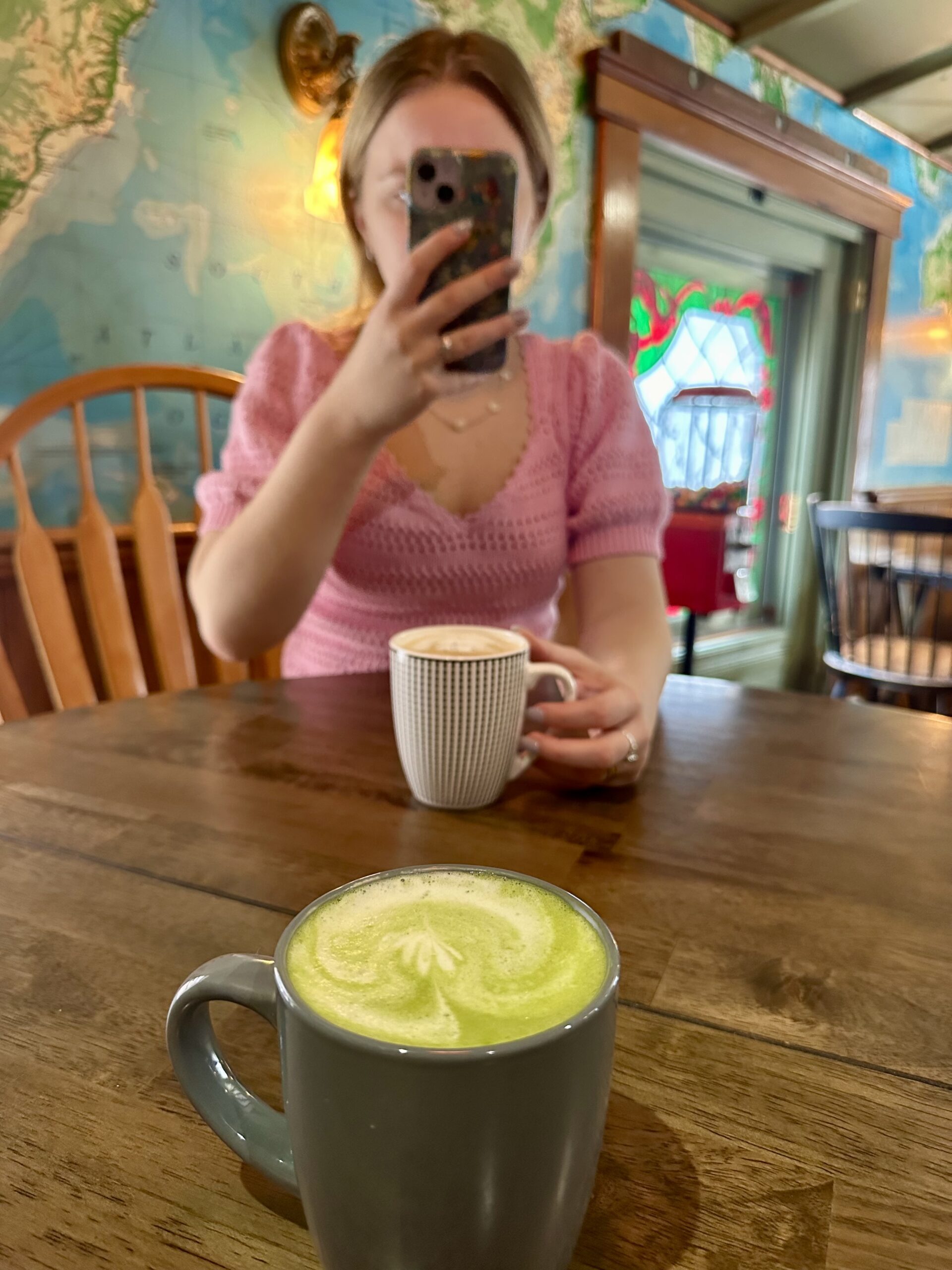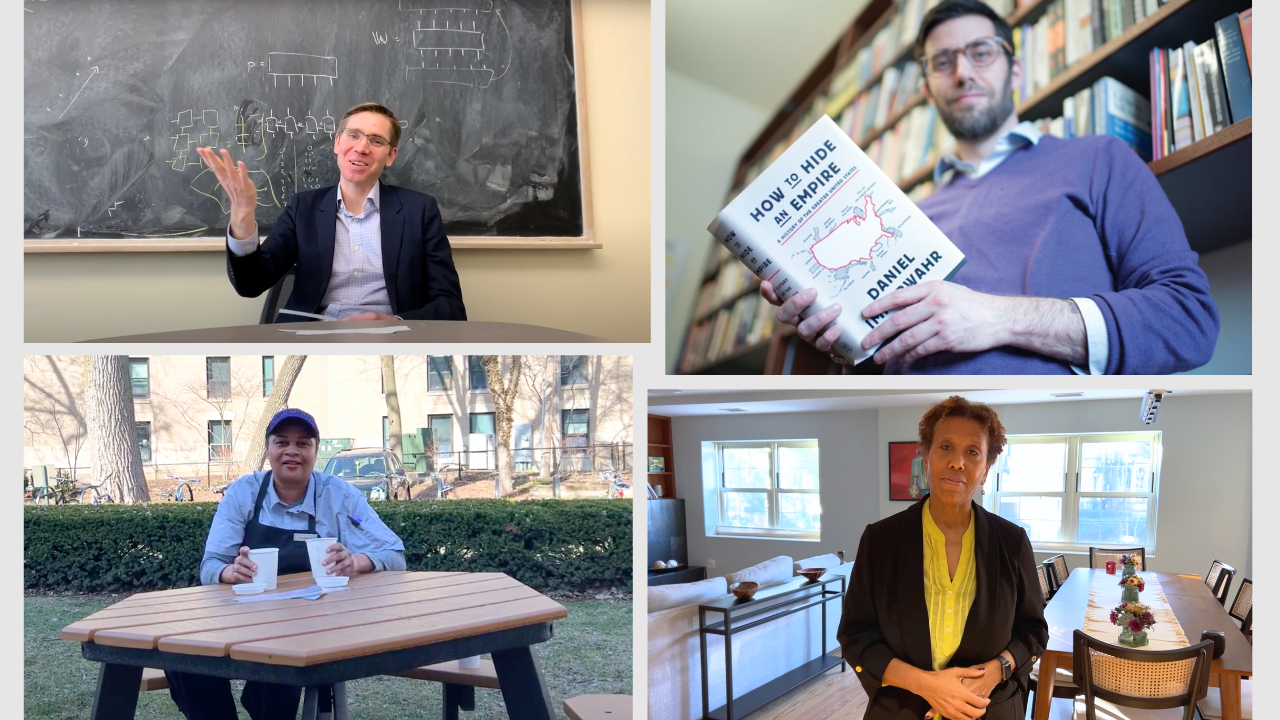
Rising Weinberg second-year Anirudh Rao took his limited-edition Blonde record off the shelf and slid it out of its sleeve.
“This was my first one,” he said, sunlight shining through the bright-green disc. The shelves neighboring Frank Ocean display albums by Kanye West, Amy Winehouse and Phoebe Bridgers. “They’re my pride and joy.”
College students are told to pack the bare minimum. For people like Rao and rising Communication second-year Angelina Randazzo, records make the cut.
“If I had to pick five to bring, I couldn’t,” said Randazzo.
Rising Weinberg second-year Meazi Light-Orr, who brought her 57-album vinyl collection with her from Los Angeles to Evanston, calls them essential.
“It’s more than just having stuff,” she said. “It makes my dorm feel like home.”
Vinyls have been growing in popularity among young people in the last two years. According to Key Production, 59% of Gen Z reported listening to physical music releases – more than any other age group, as reported by DJ Mag. Steve Kay, the owner of Evanston’s own Vintage Vinyl, said he’s seen his audience change over the 45 years his store has been open.
“The interest in records, for a lot of people, is a new thing,” Kay said. “They’re calling it a ‘resurgence’ on some level, but for us it’s been steady all the way. It’s great to see the enthusiasm amongst younger music fans wanting to hear music in this way.”
Vinyls may sometimes compete with streaming services, but 24-year-old Oscar De Leon (Medill ‘22) sees the benefit of the record. One album in his collection, Walk Among Us by Misfits, is no longer on Spotify, making his vinyl the only way he can listen to it. The holes in Spotify’s collection, including those left by major artists like Neil Young and Joni Mitchell, who left the platform for more than two years, mean vinyl holds an advantage as a repository for otherwise inaccessible music.
Light-Orr is also glad for the record renaissance.
“Taking this step back to record listening has people being more considerate about the art and the work that goes into it,” she said.
Light-Orr must get out of bed to flip the vinyl over when listening, an interruption she appreciates.
Kay said some people have grown up without a physical connection to songs.
“Listening to music became listening to a track here, a track there on your electronic device,” he said.
Streaming platforms use compressed MP3s to deliver their hosted songs to audiences. In contrast, vinyl records are recorded analog, capturing the full waveform of the sound, which brings the song to life.
“It’s a more intimate form of connecting with the music,” said rising Bienen second-year Alexander Myers. “You have to take it out of the case, put it on the [platter] and then you listen to the whole record. It’s not little bits and pieces, like, ‘Oh, I like that song,’ and then I’ll turn it off.”
For Rao, the emotion of music is heightened by the tangibility of the vinyl.
“People want that physical connection back,” Rao said. “There’s something really cool to be said about holding the music in your hand before you can listen to it. The reason I like music so much is because of the emotion of it, and I feel like if you make that physical connection, you feel that emotion much more.”
For De Leon, vinyls strengthen help strengthen his Mexican-American identity.
“I already feel like I have such a deep appreciation for my culture because of music, but I feel like owning it on vinyl is a deeper, cooler way to bring together all of these things that I love,” he said.
Light-Orr said seeing the vinyls people choose to play when they enter her room feels like a physical manifestation of a Spotify listening history. In this way, records give insight into who people are.
“Putting that out in the open, saying, ‘Hey, this is what I listen to, this is what I like, this is the way I think,’ is a pretty great way of just off rip, letting people know the kind of person that I am,” Rao said.
When people come into their dorm rooms, the vinyls serve as a talking point.
“I’m a bit reserved, and music has helped me open up,” said Light-Orr. “There are some things that frustrate me about trends making their return, like clothes that should stay dead. But vinyl is one of those trends I’m really glad for.”



